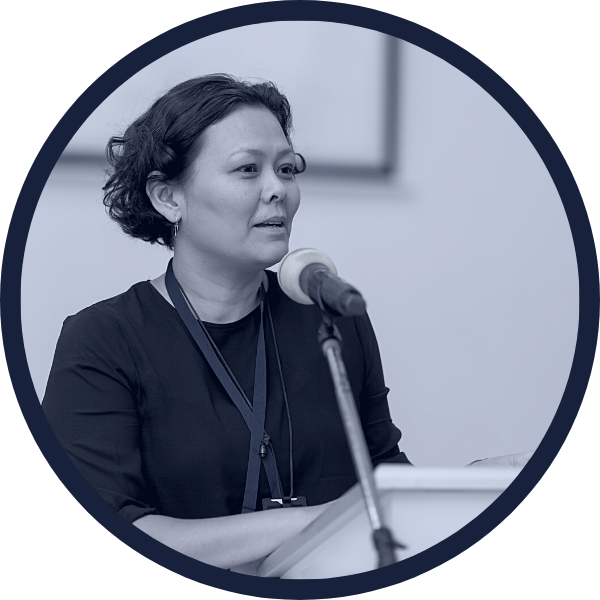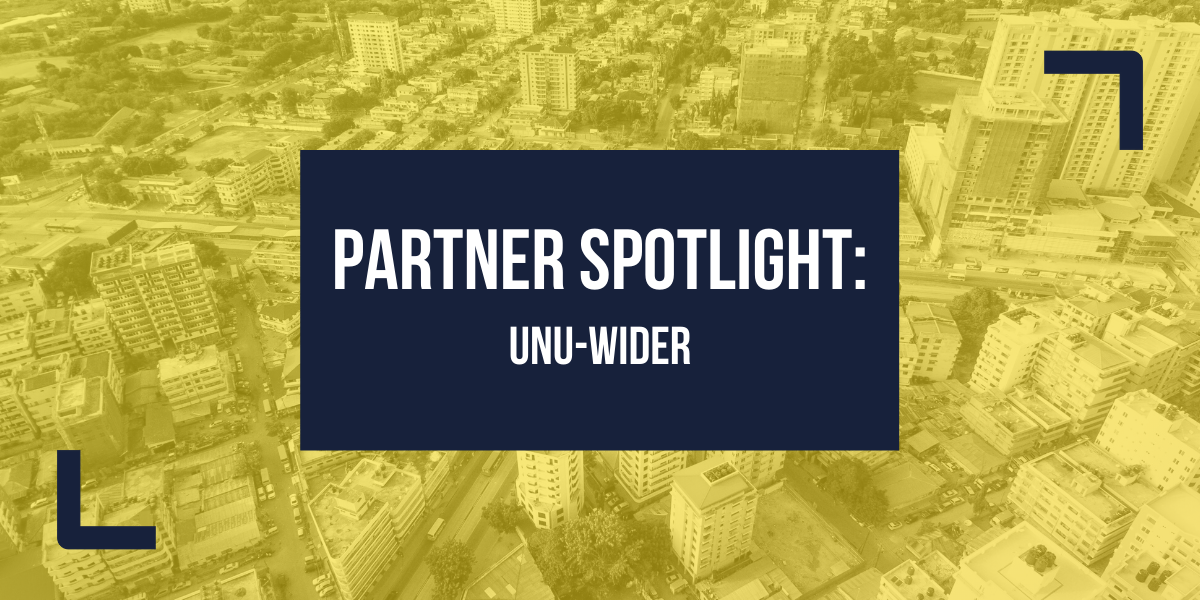The United Nations University World Institute for Development Economics Research (UNU-WIDER) provides economic analysis and policy advice with the aim of promoting sustainable and equitable development for all. UNU-WIDER’s 2019-2023 programme focuses on the interlinked development challenges of transforming economies, states and societies, that are central to achieving the United Nations’ Sustainable Development Goals (SDGs).
Rachel Gisselquist is a political scientist and senior research fellow with UNU-WIDER, focusing on the politics of developing countries and looking specifically at issues related to inequality, governance and the state in sub-Saharan Africa.

Can you tell us about UNU-WIDER’s research in African cities, and the expertise UNU-WIDER brings to ACRC?
Broadly, UNU-WIDER brings a development economics focus to the consortium. In terms of our projects, we have worked specifically on structural transformation, political clientelism, and inequality, cutting across many of the themes and domains that ACRC is looking at. I hope to bring a more political economic angle to the project and it’s also a nice opportunity for me to think more about the political settlements framework – it’s not one I’ve used before, but it’s key to the consortium’s research approach and has nice synergies with other work I’ve done. Our director, Kunal Sen, has worked extensively with a political settlements framework; he was previously joint research director of the Effective States and Inclusive Development (ESID) research centre.
“I think that bringing together the political settlements and city of systems approaches is really exciting.”
What do you find most exciting about ACRC’s approach?
I think that bringing together the political settlements and city of systems approaches is really exciting. There has been a lot of siloed work, and I think that the consortium has a huge challenge to overcome this, but it’s exciting to be taking this on.
The other aspect I find exciting about the approach is how it’s uniting researchers and practitioners. It’s not the norm in a lot of academia, so it is really motivating to have this collaborative element built into the consortium. If you look at the profiles of the partners, you can see there are African-based institutions with very strong local community and civil society ties, along with research organisations and thinktanks.
What do you think is the most crucial challenge for development in African cities?
Unsurprisingly for a political scientist, I see the biggest challenge as politics – especially in building the political will for doing development in an inclusive way. It’s not always clear how to build that political will, or how to take advantage of opportunities where that political will can be built. An interesting thing about the consortium is how it’s bringing together local action and ownership. How you build local ownership is an interesting thing in relation to getting the politics right.
I hope to do a lot of closely connected research, and as we define the specifics of the work to be done, it will become clearer who needs to be directly involved. As a researcher, one of the most exciting things is the opportunity to work really closely with people and communities.
“For UNU-WIDER, we have collaborated in many parts of Africa, so the consortium enables us to build on these partnerships, and continue working with these organisations in a different way.”
Personally, I’ve worked more at the national level – on state-building for countries, or on presidential and legislative elections, for instance – so ACRC presents the opportunity to focus much more on urban politics. For UNU-WIDER, we have collaborated in many parts of Africa, so the consortium enables us to build on these partnerships, and continue working with these organisations in a different way.
An interesting thing about the consortium is that it’s so diverse. It can be a jump to work across disciplines – and across research and practice – so it’s really exciting that the senior management team is embedding this approach into the consortium, which is not an easy thing to do.
Read more from UNU-WIDER:
- Better measures of informality can improve poverty reduction policy
- Do resource rich economies have better or worse human development outcomes?
- Ethnic diversity and informal employment in Ghana
- Over 2 billion workers globally are informal – what should we do about it?
Follow UNU-WIDER’s work:
Note: This article presents the views of the author featured and does not necessarily represent the views of the African Cities Research Consortium as a whole.
The African Cities blog is licensed under Creative Commons Attribution-NonCommercial-NoDerivatives 4.0 International (CC BY-NC-ND 4.0), which means you are welcome to repost this content as long as you provide full credit and a link to this original post.


